Pilate and Others is a Allemand film of genre Drama directed by Andrzej Wajda with Wojciech Pszoniak
Pilate and Others (1972)
Pilatus und andere – ein Film für Karfreitag
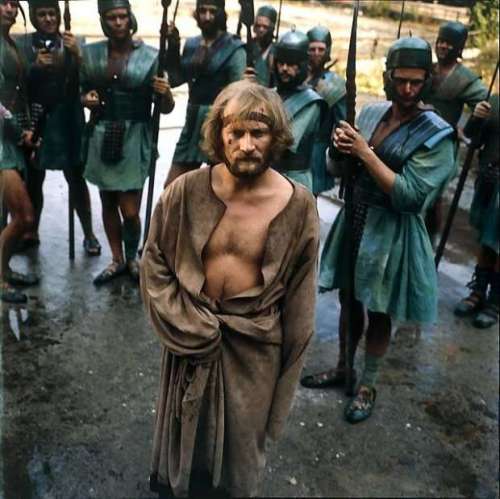
If you like this film, let us know!
Pilate and Others (German: Pilatus und andere - Ein Film für Karfreitag) is a 1972 German drama film directed by Andrzej Wajda, based on the 1967 novel The Master and Margarita by the Soviet writer Mikhail Bulgakov, although it focuses on the parts of the novel set in biblical Jerusalem.
The film has the subtitle Ein Film für Karfreitag (English: A Film for Good Friday) because it was released on March 29, 1972, on the eve of Easter. It was also shown at the Berlin International Film Festival on February 15, 2006, when director Andrzej Wajda received a Honorary Golden Bear.
Actors

Wojciech Pszoniak
(Jeszua Ha-Nocri)

Daniel Olbrychski
(Mateusz Lewita)

Andrzej Łapicki
(Afraniusz)
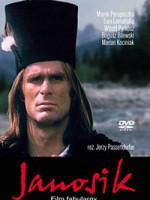
Marek Perepeczko
(Marcus)

Jerzy Zelnik
(Juda from Kiriat)
Comments
Leave comment :
Suggestions of similar film to Pilate and Others
There are 70 films with the same actors, 38 films with the same director, 61800 with the same cinematographic genres, to have finally 70 suggestions of similar films.If you liked Pilate and Others, you will probably like those similar films :

The Wedding (1973)
, 1h42Directed by Andrzej Wajda
Origin Pologne
Genres Drama
Themes Théâtre, Films based on plays
Actors Daniel Olbrychski, Ewa Ziętek, Andrzej Łapicki, Wojciech Pszoniak, Franciszek Pieczka, Marek Perepeczko
Rating68%





A poet marries a peasant girl. Their wedding reception follows. The celebration of the new marriage moves on from the church to the villager's house. In the rooms adjoining that of the wedding party, guests continually burst into arguments, make love, or simply rest from their merriment, dancing and feasting. Interspersed with the real guests are the well-known figures of Polish history and culture, who represent the guilty consciences of the characters. The two groups gradually begin a series of dialogues. The Poet (played by Andrzej Łapicki) is visited successively by the Black Knight, a symbol of the nation's past military glory; the Journalist (played by Wojciech Pszoniak), then by the court jester and conservative political sage Stańczyk; and the Ghost of Wernyhora (Marek Walczewski), a paradigm of leadership for Poland. Wernyhora presents the Host with a golden horn symbolizing the national mission, and calls the Polish people to a revolt. One of the farm hands is dispatched to sound the horn at each corner of Poland, but he loses the horn soon after.

The Birch Wood (1970)
, 1h39Directed by Andrzej Wajda
Origin Pologne
Genres Drama, Musical, Romance
Actors Olgierd Łukaszewicz, Daniel Olbrychski, Marek Perepeczko, Mieczysław Stoor, Andrzej Kotkowski
Rating68%





Dans un petit village de Pologne, Borslaw vit seul avec sa fillette depuis la mort de sa femme dans une maison au fond des bois, désespéré. Stanislaw, frère de Borslaw, dandy gai et sympathique arrive au village, où il vient finir ses jours, étant a atteint d'une phtisie au stade terminal. Ce dernier, se sachant condamné, a décidé de profiter de la vie jusqu’au bout.
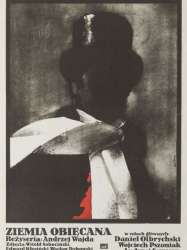
The Promised Land (1975)
, 2h59Directed by Andrzej Wajda
Origin Pologne
Genres Drama, Historical
Actors Daniel Olbrychski, Wojciech Pszoniak, Andrzej Seweryn, Anna Nehrebecka, Kalina Jędrusik, Franciszek Pieczka
Rating77%





Karol Borowiecki (Daniel Olbrychski), a young Polish nobleman, is the managing engineer at the Bucholz textile factory. He is ruthless in his career pursuits and unconcerned with the long tradition of his, now financially declined, family. He plans to set up his own factory with the help of his friends Max Baum (Andrzej Seweryn), a German and heir to an old handloom factory, and Moritz Welt (Wojciech Pszoniak), an independent Jewish businessman. Borowiecki's affair with Lucy Zucker (Kalina Jędrusik), wife of another textile magnate, gives him advance notice of a change in cotton tariffs and helps Welt to make a killing on the Hamburg futures market. But more money has to be found, so all three characters cast aside their pride to raise the necessary capital.

Everything for Sale (1969)
, 1h34Directed by Andrzej Wajda
Origin Pologne
Genres Drama
Actors Beata Tyszkiewicz, Daniel Olbrychski, Elżbieta Czyżewska, Andrzej Łapicki, Bogumił Kobiela, Elżbieta Kępińska
Rating67%





Un homme court sur le quai d'une gare pour essayer d'attraper un train en marche, manque le marchepied, trébuche et meurt écrasé sous les roues du wagon. C'est ainsi que commence la première séquence d'un film dont le tournage vient de débuter sous la direction du metteur en scène ‘Andrzej'. Mais l'acteur qui devait jouer cette scène est absent et a dû être doublé.

The Maids of Wilko (1979)
, 1h58Directed by Andrzej Wajda
Origin Pologne
Genres Drama, Romance
Actors Daniel Olbrychski, Anna Seniuk, Maja Komorowska, Stanisława Celińska, Krystyna Zachwatowicz-Wajda, Christine Pascal
Rating73%





At the age of 40, Wiktor Ruben (Daniel Olbrychski) returns to the family property (Wilko) where he'd spent his late teens/early twenties as a tutor of young sisters. Now they are all women - mostly wives and mothers. Wiktor discovers that Fela, once the closest to him, is now dead for some time and other sisters aren't too keen to talk about her and her grave is rather forgotten. He is also disappointed with how all the women have changed. Julia (Anna Seniuk), now a mother of two, doesn't resemble his first object of love and desire she once was and doesn't show him an affection he might expected. Jola (Maja Komorowska), seemingly unhappy in her marriage, chases him and makes fun of it, until he doesn't bring the painful memories of the past. Kazia (Krystyna Zachwatowicz), a divorcee - thus treated like less worthy than others - is the most demanding partner of his intellectual reflections while Zosia (Stanisława Celińska) is - as always - distant and outspoken. That leaves him with Tunia (Christine Pascal) who was only a child when he previously knew her but now resembles Fela. Wiktor spends time in Wilko but isn't able to see that his return restored once forgotten dreams and hopes of the sisters.
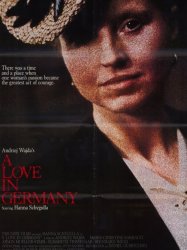
A Love in Germany (1983)
, 2h12Directed by Andrzej Wajda
Origin German
Genres Drama
Themes Films about sexuality, Political films
Actors Hanna Schygulla, Armin Mueller-Stahl, Ralf Wolter, Daniel Olbrychski, Marie-Christine Barrault, Bernhard Wicki
Rating65%





The story takes place in a little German town at the border to Switzerland. The owner of the local fruit-and-vegetables shop has been called up. His shop has a key function for the town's supply situation. His customers know from World War I how rationing can make the owner of such a shop very rich if only he's egoistic enough to get corrupted by well-heeled customers who don't care whether their poorer country fellowmen's families starve. So when his wife Paulina starts to run the shop alone, her character is subsequently of public interest for all citizens who are concerned about the well-being of their families during the ongoing war. Paulina shares the fate of other soldier's wives who constantly face the fear her husband might return crippled, maimed or not at all. But because her husband's shop is highly important for the town's community, she gets somebody who can ease her working load. She is also luckier than other women for she is still young and attractive. So is the prisoner of war named Stanislaus who must serve her. She obviously finds him handsome and relishes that he has to obey all her commands. So she decides she doesn't need to be one of the lonesome wives anymore. When she seduces him she finds him very virile and they sometimes celebrate their love even literally in the open. Finally a town's official informs her that her evident bliss leads other women to doubts about her integrity. Still she doesn't let go of her love affair although the town official keeps on warning her that under the prevailing Nazi laws her adultery is punishable as "Rassenschande". Paulina keeps on putting the Polish POW in lethal danger until he is finally taken to court and sentenced to death. Paulina is imprisoned for two years. Decades later her son and her grandson visit the still existing little town in order to confront the man who warned Paulina repeatedly but in the end let her go down. The both of them are appalled when they realise he still lives in the very town where the citizens forced him to take action on Paulina and he doesn't hide.
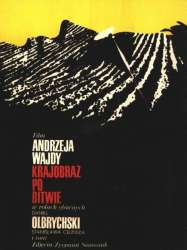
Landscape After Battle (1970)
, 1h41Directed by Andrzej Wajda
Origin Pologne
Genres Drama, War, Historical, Romance
Actors Daniel Olbrychski, Aleksander Bardini, Stanisława Celińska, Tadeusz Janczar, Zygmunt Malanowicz, Mieczysław Stoor
Rating69%





The Landscape After the Battle film tells a story of two young concentration camp survivors. A young Polish poet (Tadeusz) is asked by a pretty Jewish girl (Nina) to go with her to the West. His camp experience, however, prevents him from realizing the depth of her love for him, and he is reluctant to commit. The woman is accidentally shot dead by an American soldier, causing the poet to cry for the first time in years. The shock of her death brings back the world of feelings suppressed by his Nazi captors, and allows for his original creativity to reemerge.
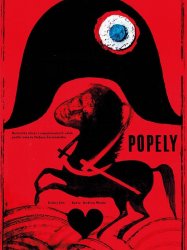
The Ashes (1965)
, 3h54Directed by Andrzej Wajda, Andrzej Żuławski
Origin Pologne
Genres Drama, War, Historical
Actors Daniel Olbrychski, Beata Tyszkiewicz, Pola Raksa, Władysław Hańcza, Jan Koecher, Zbigniew Sawan
Rating70%





Le film se déroule pendant les guerres napoléoniennes.
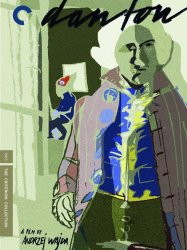
Danton (1983)
, 2h16Directed by Andrzej Wajda
Origin Pologne
Genres Drama, Biography, Historical
Themes Théâtre, Political films, Films based on plays, Histoire de France, French Revolution films
Actors Gérard Depardieu, Wojciech Pszoniak, Anne Alvaro, Patrice Chéreau, Bogusław Linda, Roger Planchon
Rating73%





The film begins in the spring of 1794, when the Reign of Terror was in full swing. On the borders of Paris, any vehicles entering Paris, including the carriage of Danton, who has just ridden in, are being searched. Robespierre, meanwhile, is sick in his bed. His landlady's daughter, Éléonore Duplay, attempts to comfort him, but is unable to. Her nephew, whom she is taking care of, is meanwhile being made to memorize lines from the Declaration of the Rights of Man and Citizen. Back in the streets of Paris, starving lines of people, waiting for bread, discuss the possible reasons for the lack of it. Whether or not it is an enemy plot, the people do know that they are hungry, and that hunger leads to revolt. Once the bread store actually opens, and they finally begin to receive their bread, they are distracted by their other source of faith and hope in life: Danton. As Robespierre is watching, Danton is swarmed by a mob of supporters and fans, who all cry out for help. Robespierre, in his flat, is visited by Heron, the chief of the secret police, and instructs him to destroy the print shop of Camille Desmoulins, who is publishing pro-Dantonist circulars.

Pan Tadeusz (1999)
, 2h27Directed by Andrzej Wajda
Genres Drama, War, Historical, Romance
Themes Histoire de France, Napoleonic Wars films
Actors Bogusław Linda, Alicja Bachleda-Curuś, Jerzy Bińczycki, Daniel Olbrychski, Grażyna Szapołowska, Andrzej Seweryn
Rating60%





Pan Tadeusz is told in flashbacks as the author, Adam Mickiewicz, reads his work to a group of elderly exiles in Paris. The story takes place over the course of five days in 1811 and one day in 1812 in rolling landscapes of Lithuania inhabited by Poles whose homeland has been recently partitioned among Russia, the Austrian Empire and Prussia. Not far off in history looms Napoleon's invasion of Russia, the prospect of which heartens Poles yearning for liberation. But more immediately, the characters in Pan Tadeusz are feuding among themselves.
 Connection
Connection